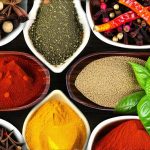Digestion is often an overlooked cornerstone of overall well-being. We tend to pay attention when things go wrong – bloating, discomfort, heartburn – but rarely consider how optimizing digestion can contribute to increased energy levels, better nutrient absorption, and even improved mood. Many people experience digestive sensitivities that are exacerbated by strong flavors or ingredients, leading to nausea or upset stomachs. This often results in unnecessarily restrictive diets or a reliance on bland, uninspiring food. However, it’s entirely possible – and indeed desirable – to support healthy digestion using gentle spices and herbs without triggering these unpleasant side effects. The key lies in understanding which options are naturally soothing, how to use them effectively, and recognizing individual sensitivities. If you struggle with chronic nausea it’s important to understand your triggers.
The misconception that all spices are ‘strong’ is a common one. While some (like chili peppers or excessive black pepper) can certainly be irritating for sensitive individuals, many others possess inherent qualities that calm the digestive system. These gentler flavors aren’t about masking taste; they’re about subtly enhancing it while simultaneously aiding digestion. This approach focuses on nourishment and support rather than aggressive stimulation. It’s about working with your body, not against it, to create a more comfortable and enjoyable eating experience. Learning to incorporate these options can significantly broaden culinary horizons for those with sensitive systems and improve digestive health for everyone. Consider the best food choices to support a healthy gut.
Gentle Herbs & Spices For Digestive Support
Many herbs and spices offer a spectrum of benefits beyond just flavor. Ginger, for example, is widely recognized as a potent anti-nausea remedy but its digestive support extends far beyond that. It stimulates the production of digestive enzymes, aiding in the breakdown of food and reducing bloating. Similarly, cardamom isn’t just fragrant; it’s believed to help reduce gas and improve intestinal motility – the natural contractions that move food through your digestive tract. Fennel seed, often enjoyed as a tea after meals, is another excellent choice, traditionally used to alleviate bloating and indigestion. These aren’t quick fixes, but rather tools for promoting long-term digestive wellness when incorporated thoughtfully into your diet. Learning how to use flavored water can be a great addition too.
The beauty of using herbs and spices lies in their versatility. They can be added to teas, infused into oils, sprinkled onto food during cooking, or even consumed raw (in small amounts) depending on the herb/spice and personal preference. However, moderation is crucial, especially for those prone to nausea. Start with very small quantities and gradually increase as tolerated. It’s also important to consider the quality of your spices; fresh, whole spices generally retain more potent beneficial compounds than pre-ground options. Organic sourcing can further minimize exposure to potential irritants or contaminants.
Furthermore, understanding the energetic properties of herbs and spices – a concept rooted in traditional medicine systems like Ayurveda – can be incredibly helpful. Some are considered ‘warming’ (like ginger), while others are ‘cooling’ (like fennel). Balancing these energies based on your individual constitution and current digestive state can optimize their effectiveness. For instance, someone experiencing excessive heat or inflammation might benefit more from cooling herbs, whereas someone with sluggish digestion might respond better to warming spices.
Soothing Teas & Infusions
Herbal teas are an excellent way to gently support digestion, particularly for those sensitive to strong flavors. Chamomile tea is a classic choice, known for its calming and anti-inflammatory properties; it can help relax the digestive muscles and reduce bloating. Peppermint tea, while often helpful for indigestion, should be used cautiously by individuals with acid reflux as it can sometimes exacerbate symptoms – start with very small amounts. Ginger tea, made from fresh ginger slices, is a powerful anti-nausea remedy and aids in digestion.
- To make a simple digestive tea:
- Add 1-2 teaspoons of dried herb (or 1-2 slices of fresh ginger) to a cup of hot water.
- Steep for 5-10 minutes, depending on the desired strength.
- Strain and enjoy slowly.
- Consider combining herbs for synergistic effects – chamomile and fennel, for example. Hydration strategies are also important to consider when incorporating teas.
A key consideration is temperature. While many prefer warm tea, extremely hot beverages can sometimes irritate a sensitive digestive system. Letting the tea cool slightly before consuming may be more comfortable. Avoid adding sugar or dairy as these can often contribute to bloating or discomfort. A small amount of honey might be acceptable for some, but should be used sparingly.
Spice Blends & Seasoning Strategies
Creating your own spice blends allows you to control the ingredients and ensure they’re tailored to your individual needs and tolerances. Avoid pre-mixed blends that may contain potentially irritating spices like cayenne pepper or excessive black pepper. A gentle blend might include:
* Ground cardamom
* Ground coriander
* A pinch of ground ginger
* Turmeric (known for its anti-inflammatory properties, but use in moderation)
When seasoning food, start small. It’s much easier to add more spice than to remove it. Focus on layering flavors gradually throughout the cooking process rather than adding a large amount at the end. Consider using herbs and spices as finishing touches – sprinkling fresh parsley or dill over cooked vegetables, for example – to add subtle flavor without overwhelming your system. Meal structure can also influence how well you digest food.
Prioritizing whole foods is also essential. Even the gentlest spice blend won’t compensate for a diet heavy in processed foods or artificial ingredients. A foundation of nourishing, easily digestible foods – like steamed vegetables, lean proteins, and whole grains – provides the optimal environment for digestive health. Also consider daily habits that might be negatively affecting your system.
Understanding Individual Sensitivities
Everyone’s digestive system is unique. What works well for one person may not work for another. Pay close attention to your body’s signals. Keep a food diary to track which herbs and spices seem to trigger symptoms, even mild ones. This isn’t about eliminating foods entirely; it’s about identifying personal triggers and adjusting accordingly. Food sensitivities can change over time, so regular reassessment is important.
- Common digestive triggers:
- Excessive fat
- High levels of fiber (for some)
- Artificial sweeteners
- Certain food additives
- If you suspect a more serious underlying condition, consult with a healthcare professional before making significant dietary changes.
The goal isn’t to live in fear of food but to develop a mindful and personalized approach to eating that supports your digestive health and overall well-being. Gentle spices and herbs are valuable tools in this process – offering flavor, nourishment, and comfort without triggering the unpleasant symptoms many people with sensitive systems experience. Indigestion management can also be a helpful area to research if you are struggling with chronic nausea.


















